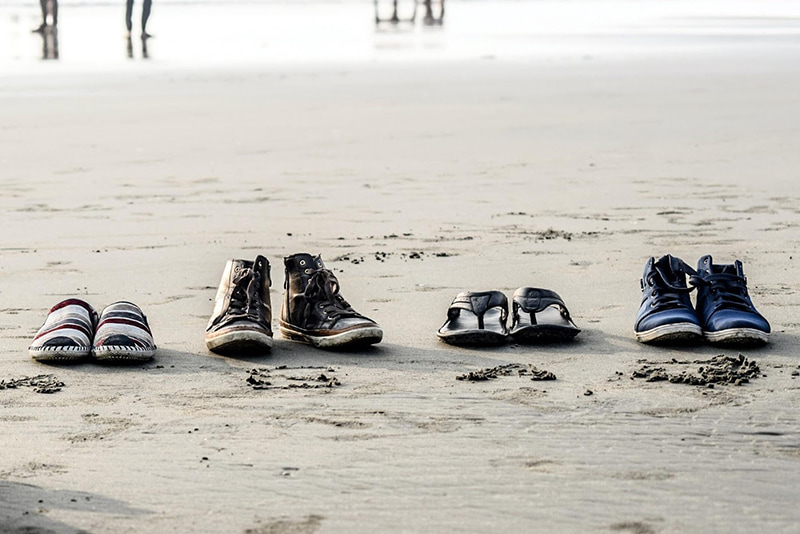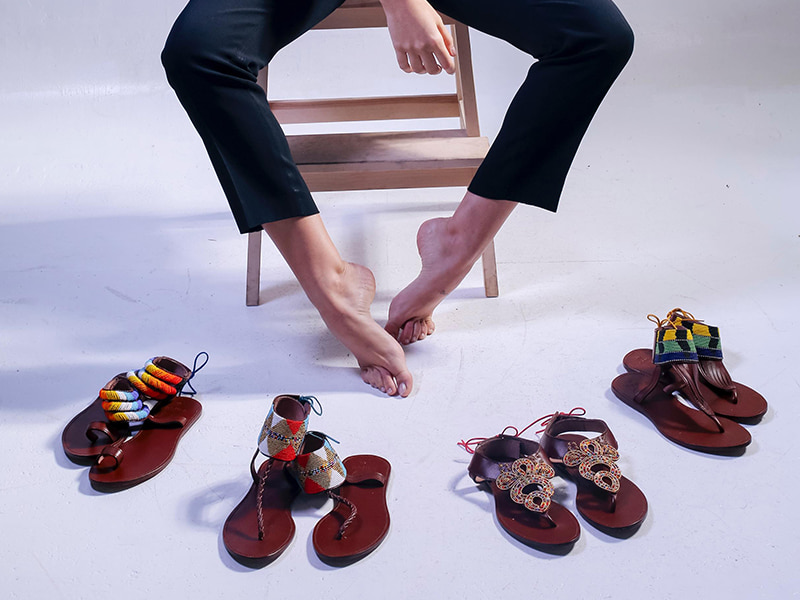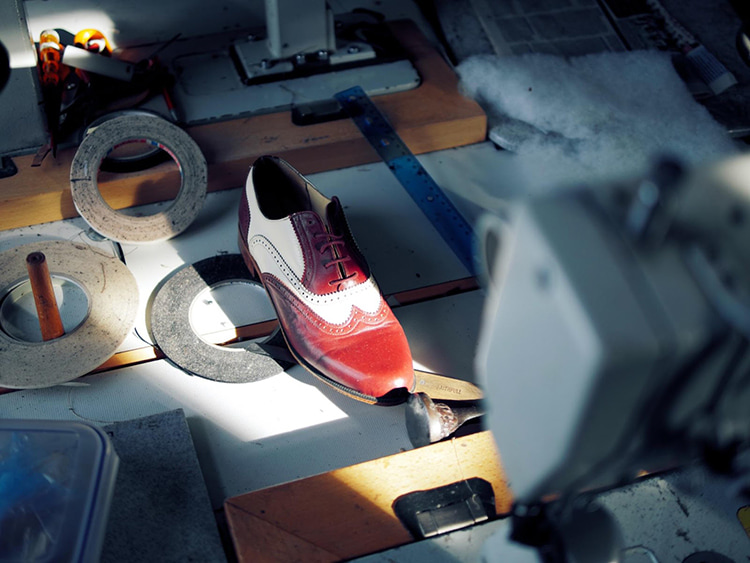
Ecological and ethical shoes to protect the planet
It is now known that the shoe industry is very polluting, especially because of fast fashion. About 20 billion pairs of shoes are made every year, and nearly 300 million of them end up in landfill. Some rubber soles can even last 1000 years before they start to degrade.
Fortunately, today more and more people are concerned about environmental health. It is in this context that we invite you to discover ecological and ethical shoes. Choosing what to wear is an essential step in protecting our planet.
The shoe industry
The booming footwear industry is responsible for 1.4% of global greenhouse gas emissions. It is also infamous for its extraction of non-renewable raw materials and its production of hazardous and non-recyclable waste.
Nowadays, shoes aren’t made to last. They are made from a mixture of components (plastic, leather, petroleum, textiles) that are glued and molded together. After a fleeting existence, a pair of shoes is either incinerated or landfilled. Synthetic materials such as ethylene-vinyl acetate (found in the shock-absorbing sole of sneakers) take up to 1,000 years to break down. PVC, found in most uppers and outsoles, not only pollutes ecosystems, but is considered carcinogenic by the WHO.
The treatment and dyeing of textiles are responsible for 20% of the world’s industrial water pollution. In addition, large quantities of harmful by-products are released into nature. In 2011, Greenpeace discovered that Chinese factories linked to Nike, Adidas and Puma were responsible for the release of huge quantities of toxic chemicals. These substances were dumped in the Yangtze and Pearl River deltas.
The extraction of raw materials and the tanning stages of leather shoes contribute to more than 50% of its ecological impact.
What are ecological and ethical shoes ?
A purely eco-friendly product primarily focuses on low environmental impact, longevity and energy efficiency. The ethical component contributes to the respect of human rights in all their forms.
Digital hub Sustainable Urban recommends that a product, or in this case a pair of shoes, to be ecological and ethical, must adhere to the “4 pillars of sustainability” :
- Eco-friendly materials : no use of harmful materials or degradation of natural resources.
- Ethical production : fair labor and supply chain with low ecological impact.
- Efficient life cycle : positive socio-economic impact, low carbon footprint, practical, durable and low waste.
- Minimal impact disposal : ensuring that a product can be recycled, recycled, reused or composted.
In this context, shoes made from recycled materials are a step in the right direction. Recycled shoes are made from existing materials, such as post-consumer recycled waste or renewable natural resources. They contain innovative and environmentally friendly materials such as bamboo. Used in the uppers of shoes, it self-regenerates like grass and captures CO2.
Leather tanning is also a technique with a significant ecological impact. Normally carried out with chrome, it is with a vegetable dye that the tanning is carried out on eco-responsible shoes. Chromium is a particularly common chemical that can cause quite severe allergies. People sensitive to this product will immediately notice the interest of a shoe made with plant materials. Indeed, the foot, being forced to remain closed in a shoe for many hours a day, is directly affected by the materials used.
Uungu: the ecological and ethical “barefoot” sandals
The Uungu brand, proposed by Label AÉ, is the perfect example of the creation of shoes that are both ecological and ethical. The brand’s sandals are made so that the sole is as light and flexible as possible, hence the name “barefoot“. The brand’s models are inspired by Africa, and more particularly by Kenya and its Maasai people.
These sandals are designed in France, developed in Belgium, then handmade in Kenya. Uungu strikes a balance between the creation of contemporary design, cultural reference, preservation of know-how, eco-responsibility and fair trade. Indeed, the Kenyan technique of stringing glass beads used for the creation of the models is carried out by a collective of local artisans. The Uungu house wishes to work with them by ensuring them fair remuneration. In addition to being ethical and filled with stories, Uungu sandals are made from vegetable-tanned leather. A method of production and manufacturing that aims to be the most virtuous and respectful of values and people.

Buying a pair of eco-friendly sandals or sneakers may seem like a small gesture. But what if billions of people made this small gesture ? Millions of tons of CO2 would be saved, as well as tons of raw materials and waste.
Yasmine Besbes

